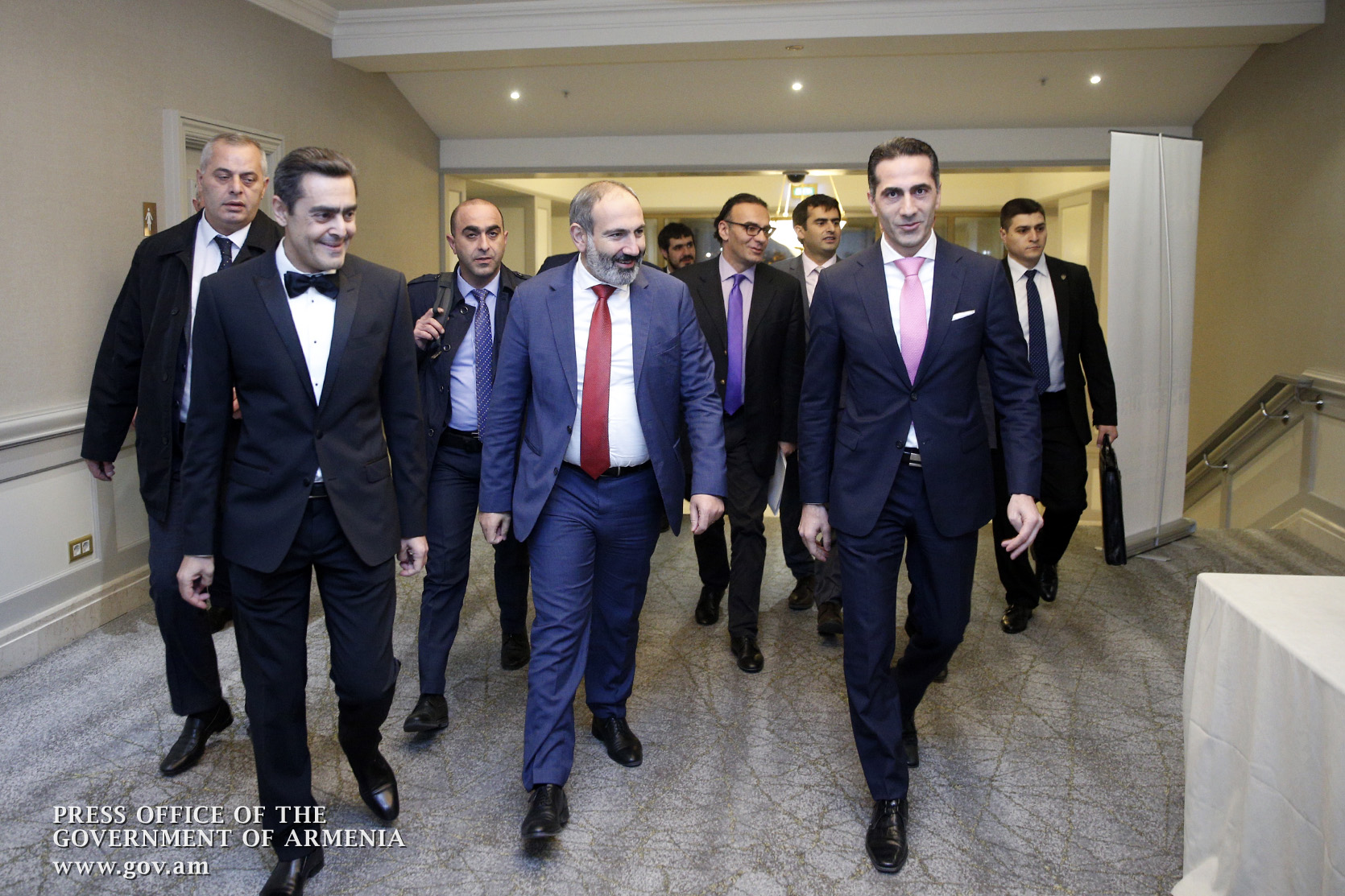Acting Prime Minister Nikol Pashinyan had working dinner with members of the Board of Trustees and Advisory Council of the Armenian Foundation for Science and Technology (FAST), which features scientists, engineers and entrepreneurs from around the world
Addressing those present, Nikol Pashinyan stated, in part:
“Honorary members of the Trust Board of Trustees,
Ladies and Gentlemen,
I am glad to welcome the Innovative Forum’s organizers and participants. It is symbolic for me to address you from this podium, because by saying innovation people often mean technology or the quasi-technological sphere. But I believe the concept of innovation refers to everything from politics and management systems to education and technical progress.
After all, what is innovation? The art of doing the same thing better and more effectively. The art of formulating, nominating, and implementing previously unknown goals that are impossible. Those who are in the new dimension of mind are those who see a very clear way out of the deadlock, perceiving the impossibility as an exceptional opportunity. They are making political, economic, technical and informational innovations. We have always had such people in our country. After all, Armenia was considered to be the former Soviet Union’s Silicon Valley where Nairi-2, the Soviet-era first computer and one of the first in the world was manufactured.
Today, there are even more such people in Armenia and thanks to them we are considered to be a country that has its unique place on the world map of information technologies. The IT sector grew five-fold over the past seven years in Armenia with an annual rate of about 25%.
The TUMO Center for Creative Technologies is an educational program that is acknowledged worldwide as an Armenian brand. It has already been introduced in a number of developed countries, such as France, Russia, and Germany. At the same time, we give schoolchildren the opportunity to study robotics in ARMAT laboratories. The Internet is available today in most of the Armenian population in all regions.
And let me say that in the light of these technological and innovative changes, a political innovation – an unprecedented nonviolent, velvet, popular revolution appeared to be possible in our country that took place in April-May this year. I mean, the revolution would have been impossible if the internet network had not been so developed in Armenia.
The revolution would be impossible if such a revival of engineering work in Armenia was not so many citizens and young people involved in IT, with intellectual, financial and civic independence.
And let me say that in the light of these technological and innovative changes, political innovation has become possible in Armenia, an unprecedented nonviolent, velvet, popular revolution in our country that took place in April-May of this year. I mean, the revolution would be impossible if the internet network in Armenia was not so developed.
The revolution would have been impossible if we had not boasted such a drastic revival of engineering work in Armenia; if so many citizens and young people had not been involved in IT activities with intellectual, financial and civic independence.
The revolution would have been impossible if our schoolchildren had not broken down the old stereotype of ordinary student in TUMO and other such centers.
By the way, I have repeatedly stated that a key factor in our revolution was the unprecedented high level of women’s involvement in political processes.
Here, I would like to cite some statistics. Women’s involvement in the IT sector is around 10% in the world. Armenia’s IT sector boasts three times as many women engaged in IT activities, about 33%. This is a pretty good figure.
And therefore, let me say that the Armenian people has already proved to be an innovative nation because I think that the non-violent, velvet, popular revolution was a world-class political innovation.
Here, I wish to make a special mention of FAST Foundation’s innovative activities, which is believed to be a unique platform that unites educational organizations, leading IT companies and professional associations, as well as communication operators under its umbrella to make of Armenia a leader in the field of innovations. This is quite an ambitious target, and I am happy that it has been set as a benchmark.
Armenia’s current potential enables us to implement programs both with our compatriots from Diaspora and international organizations and – why not – with the IT giants. We are launching exciting startup projects to create ecosystems, incubators, including sustainable development laboratories.
The Francophonie Summit’s main focus was to promote women’ and youth’s involvement in the sphere of digital technologies. Artificial intelligence, cyber security, block-chain and semiconductor technologies are among our priorities.
We are committed to further expanding cooperation with our partners, which should be done with your assistance by using forums like this as a platform.
Dear friends,
In this era of digital revolution, the role of physical boundaries is gradually diminishing. This is particularly relevant to Armenia. Our neighbors’ policies and the confrontation of political interests on the global scale have made of Armenia an isolated enclave, and the advanced technologies seem to be our only gateway to the outer world. Therefore, it is crucial for us to broaden that gateway. As one of the tech giants Steve Jobs used to say, innovation breaks down with the leader and the followers. Those present here have crossed that borderline through innovation and were promoted into leaders from their status of a follower.
Hence, our collective task is getting evident, that is to overhaul Armenia from a follower country into a leading nation. And I am convinced that we can do it together.”



















































